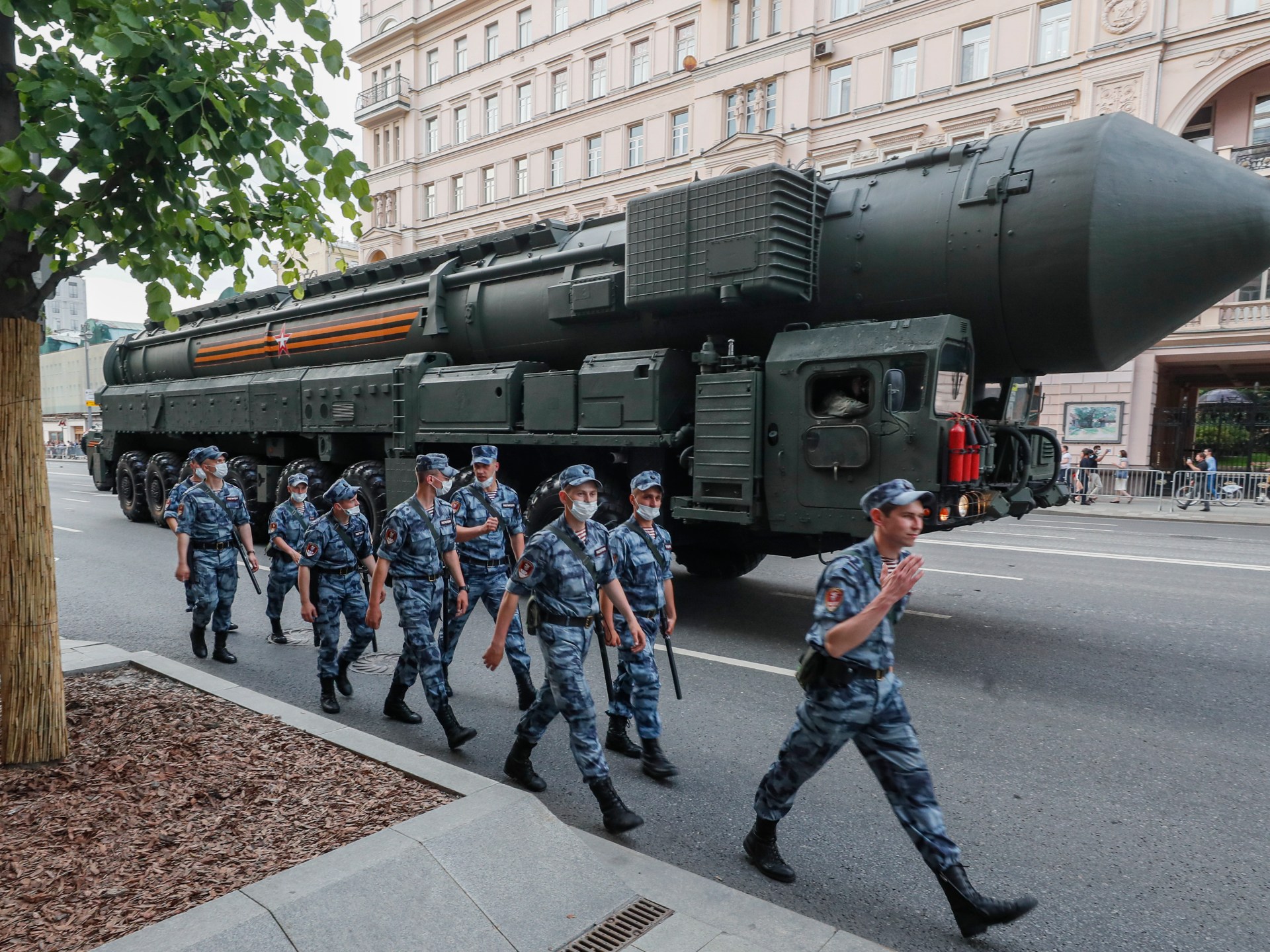Russia announced today, Tuesday, the suspension of its participation in the New START treaty with the United States to limit nuclear weapons, and Russian President Vladimir Putin accused the West of direct involvement in attempts to strike his country's strategic air bases.
What is this treaty?
And what is its importance?
What does Russia's withdrawal mean?
Former US President Barack Obama and his Russian counterpart Dmitry Medvedev signed in 2010 the New START treaty to limit the number of strategic nuclear warheads that the two countries can deploy, and the official name of the treaty is "Measures for Further Reduction and Limitation of Strategic Offensive Weapons."
The agreement was officially signed in the first week of February 2011 after its ratification in the US Congress in December 2010 and the Russian Duma in January 2011.
The New START treaty entered into force in 2011, and was extended in 2021 for a period of 5 years after US President Joe Biden took office.
This treaty is the last nuclear arms control process between Washington and Moscow, and it followed the Treaty on Strategic Offensive Reductions of 2002, which expired with the entry into force of the New START Treaty.
Treaty details
New START allows both US and Russian inspectors to ensure that both sides are in compliance with the treaty.
Under the agreement, Moscow and Washington commit to deploying no more than 1,550 strategic nuclear warheads and a maximum of 700 long-range missiles and bombers.
Each side can conduct up to 18 inspections of strategic nuclear weapons sites each year to ensure that the other side has not violated the treaty's limits, but inspections under the treaty were suspended in March 2020 due to the "Covid-19" pandemic.
Talks between Moscow and Washington to resume inspections were scheduled to take place last November in Egypt, but Russia postponed them, and neither side set a new date.
What are the most important weapons covered by the treaty?
The New START Treaty deals with long-range and intercontinental nuclear missiles. The treaty specified that the two countries' nuclear arsenal of intercontinental missiles should not exceed 700 nuclear warheads at ground bases and 1550 nuclear missiles in submarines and strategic air bombers, with the possession of 800 fixed and non-fixed missile launchers. nuclear.
The treaty does not impose restrictions on testing, developing, or deploying additional nuclear programs, and the agreement does not limit the current or planned US missile defense program or Moscow's long-range conventional strike capabilities.
Threatening to withdraw
Russia said in February that it wanted to preserve the treaty, despite what it described as a destructive US approach to arms control.
Russia and the United States together possess about 90% of the nuclear warheads in the world, and the two sides stressed the need to avoid a war between the two nuclear powers at all costs.
But Russia's war on Ukraine has brought the two countries closer to direct confrontation than at any time in the past 60 years.
The United States accuses Russia of violating the New START treaty by not allowing inspections on its territory, while Russia has warned that the West's determination to defeat it may prevent the renewal of the treaty when it expires in 2026.
Putin confirmed that he is ready to use all necessary means to defend Russia's territorial integrity (Associated Press)
What does Russia's withdrawal from the treaty mean?
In turn, US Secretary of State Anthony Blinken considered Russia's decision to suspend the nuclear arms reduction treaty with Washington "very unfortunate and irresponsible," but stressed that his country was still ready for dialogue on this issue.
NATO Secretary General Jens Stoltenberg also criticized Russia for suspending its participation in the treaty, saying, "I regret Russia's decision today to suspend its participation in the New START treaty."
The New START Treaty was the only remaining nuclear arms control agreement between the United States and Russia after they withdrew in 2019 from the Intermediate-Range Nuclear Weapons Treaty signed between them in 1987.
Russia last year described the threat of nuclear conflict as real and said it should not be underestimated but should be avoided at all costs.
Fears of a nuclear confrontation have increased since the Russian war on Ukraine, which was evident in Putin's speech today, Tuesday, in which he reminded the world of Moscow's arsenal and strength, and said he was ready to use all necessary means to defend Russia's "territorial integrity".

